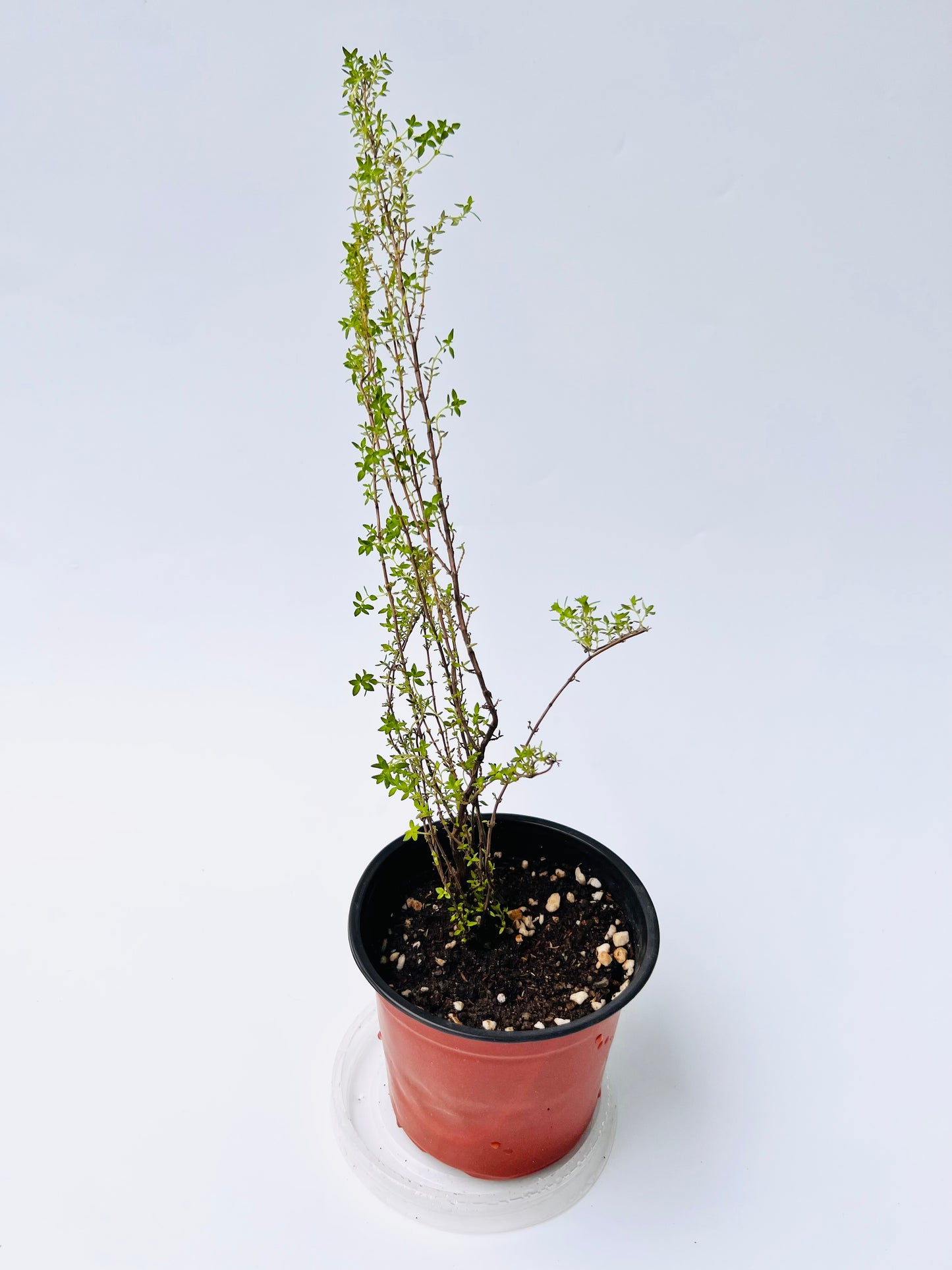Eudanafarms
Thyme seedlings
Thyme seedlings
Couldn't load pickup availability
Lemon Thyme.
Height: 5-8inches in a 12cm Nursery pot
Here's a comprehensive care guide for thyme plants:
1. Site Selection:
- Choose a sunny location for your thyme plants where they can receive at least 6-8 hours of direct sunlight daily.
- Thyme can tolerate some shade but thrives best in full sun.
- Ensure good air circulation to prevent fungal diseases.
2. Soil Preparation:
- Thyme prefers well-draining soil
- Amend heavy or clay soils with sand or perlite to improve drainage.
- Incorporate organic matter like compost into the soil to enrich fertility.
3. Planting:
- Dig a hole slightly larger than the root ball, place the plant, and backfill with soil.
4. Watering:
- Water newly planted thyme regularly to establish roots. Once established, thyme is drought-tolerant.
- Water deeply but infrequently, allowing the soil to dry out slightly between waterings.
- Avoid overwatering to prevent root rot and fungal diseases.
6. Fertilizing:
- Thyme generally does not require much fertilizer.
- If your soil is poor, you can apply a balanced fertilizer (such as 10-10-10) sparingly in early spring.
7. Mulching:
You can skip mulching. Thyme prefers well-drained soil, and mulching can lead to excess moisture retention, which can be detrimental to its health.
8. Pest and Disease Management:
- Thyme is relatively pest-resistant, but it can occasionally be affected by aphids or spider mites.
- Use insecticidal soap or neem oil if pests become problematic.
- Ensure good air circulation and avoid overcrowding plants to prevent fungal diseases like powdery mildew.
9. Harvesting:
- You can start harvesting thyme leaves once the plant reaches about 6 inches tall.
-Do not harvest woody branches, only the top green branches
- Trim leaves as needed throughout the growing season, but avoid cutting more than one-third of the plant at a time.
- Harvest in the morning when essential oils are at their peak for the best flavor.
Extra Care Instructions for Container Gardening
Here's a detailed care guide for growing thyme plants in containers:
1. Container and Soil Preparation:
- Select a container with good drainage holes to prevent waterlogging, as thyme plants dislike soggy roots.
- Use a well-draining potting mix designed for herbs or mix your own with equal parts of potting soil, perlite, and coarse sand.
- Ensure the container is at least 6-8 inches deep to accommodate thyme's root system.
2. Watering:
- Water thyme plants evenly to keep the soil moist but not waterlogged.
- Check the moisture level regularly, especially during hot weather, and water when the top inch of soil feels dry.
- Avoid overhead watering to prevent fungal diseases; water at the base of the plants instead.
By following these care guidelines, you can grow healthy and flavorful thyme plants in your garden or containers. Thyme is a versatile herb that adds wonderful fragrance and taste to many dishes, making it a valuable addition to any herb garden.
1.0 / 5.0
(0) 0 total reviews
Share




